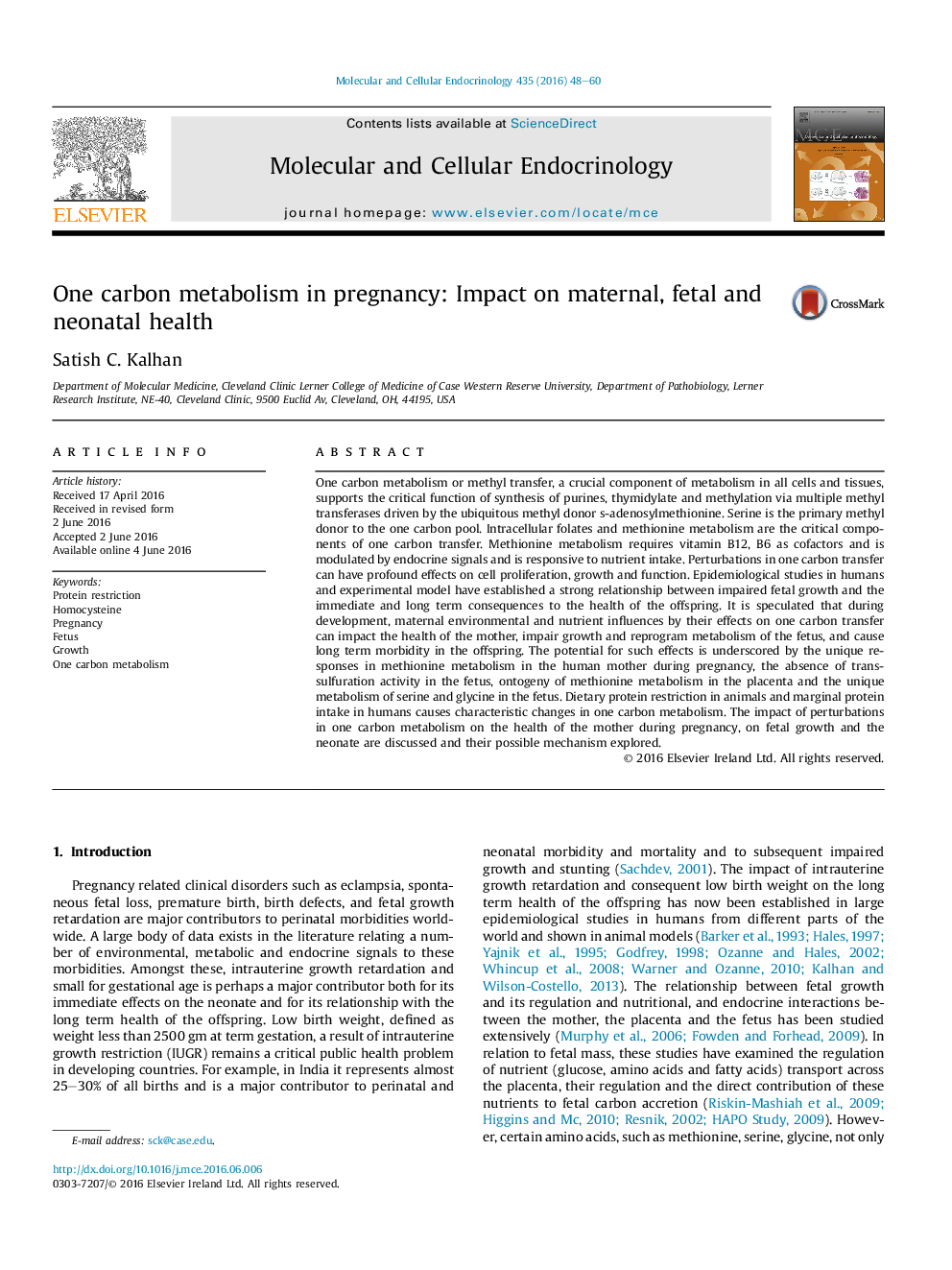| Article ID | Journal | Published Year | Pages | File Type |
|---|---|---|---|---|
| 2195483 | Molecular and Cellular Endocrinology | 2016 | 13 Pages |
•One carbon transfers are critical component of intracellular metabolism of most eukaryotes.•Characteristic adaptations in one carbon metabolism are observed in the mother, fetus and placenta.•Perturbations in one carbon transfer can have profound impact on cell function, proliferation and growth.•Decreased dietary protein intake has profound effects on one carbon metabolism.•Nutritional influences, by affecting one carbon metabolism, impact the health of the mother, fetus and neonate.
One carbon metabolism or methyl transfer, a crucial component of metabolism in all cells and tissues, supports the critical function of synthesis of purines, thymidylate and methylation via multiple methyl transferases driven by the ubiquitous methyl donor s-adenosylmethionine. Serine is the primary methyl donor to the one carbon pool. Intracellular folates and methionine metabolism are the critical components of one carbon transfer. Methionine metabolism requires vitamin B12, B6 as cofactors and is modulated by endocrine signals and is responsive to nutrient intake. Perturbations in one carbon transfer can have profound effects on cell proliferation, growth and function. Epidemiological studies in humans and experimental model have established a strong relationship between impaired fetal growth and the immediate and long term consequences to the health of the offspring. It is speculated that during development, maternal environmental and nutrient influences by their effects on one carbon transfer can impact the health of the mother, impair growth and reprogram metabolism of the fetus, and cause long term morbidity in the offspring. The potential for such effects is underscored by the unique responses in methionine metabolism in the human mother during pregnancy, the absence of transsulfuration activity in the fetus, ontogeny of methionine metabolism in the placenta and the unique metabolism of serine and glycine in the fetus. Dietary protein restriction in animals and marginal protein intake in humans causes characteristic changes in one carbon metabolism. The impact of perturbations in one carbon metabolism on the health of the mother during pregnancy, on fetal growth and the neonate are discussed and their possible mechanism explored.
